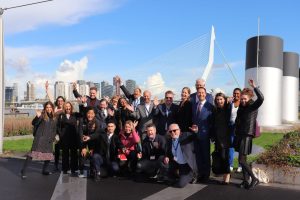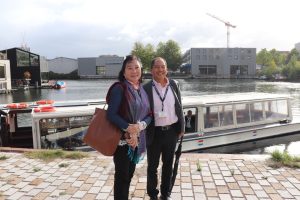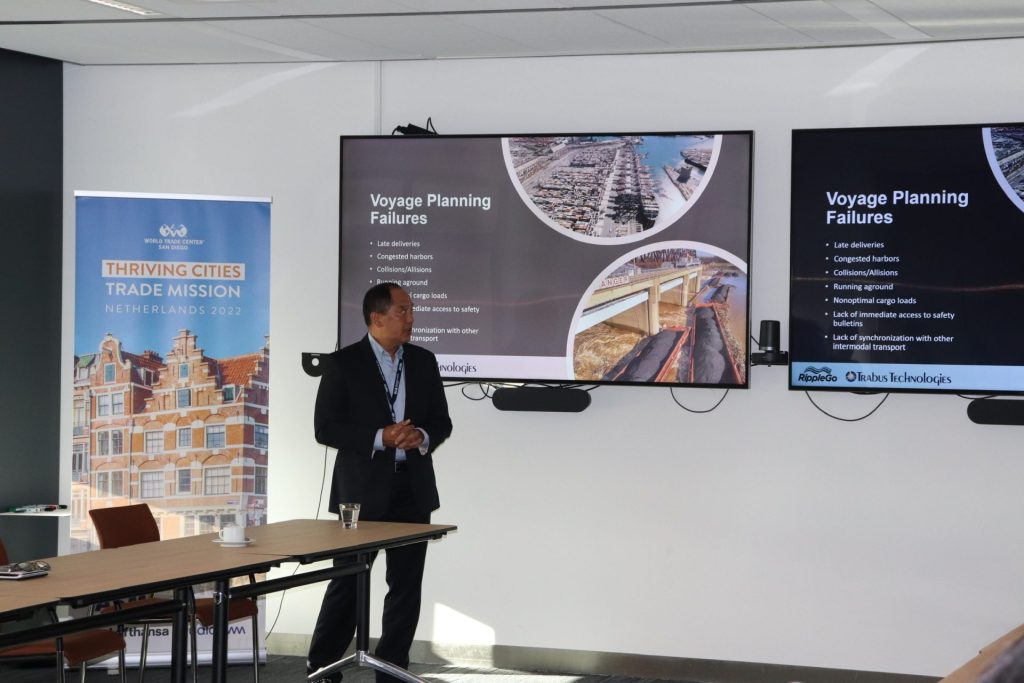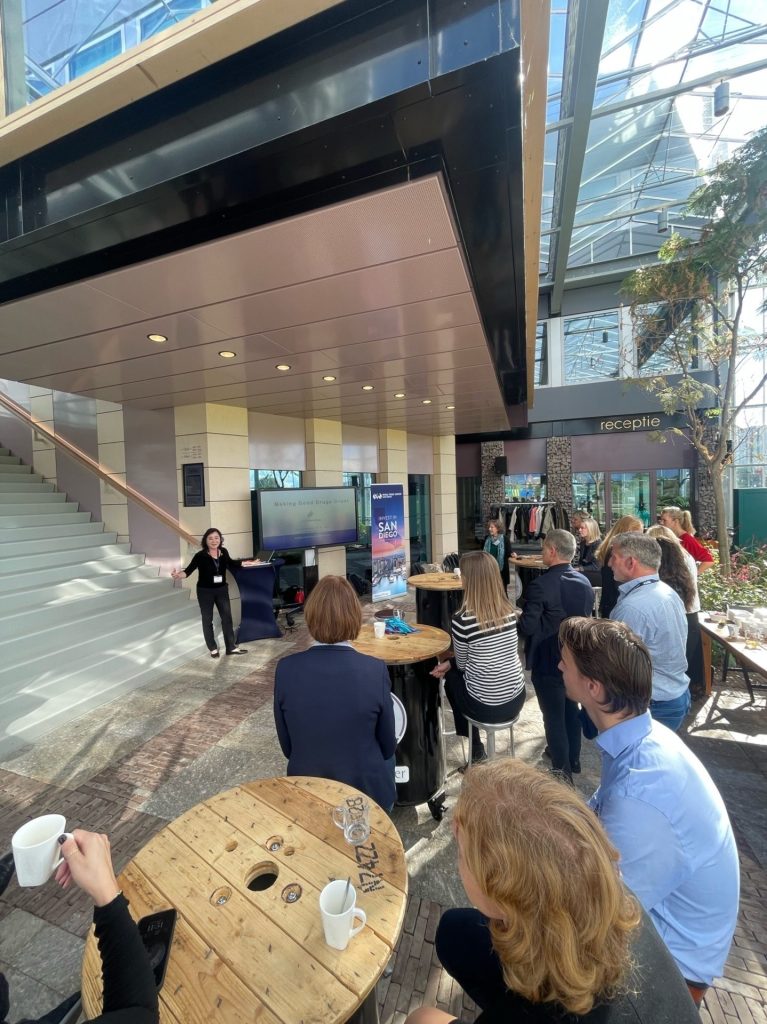Over the last few months, EDC has collaborated with San Diego Mayor Todd Gloria and representatives from the City on several site visits to the region’s leading defense innovators: General Atomics, General Dynamics NASSCO, and Cubic. These listening tours give City leadership the opportunity to hear first-hand the opportunities and challenges employers face in growing in San Diego and foster collaboration between industry and government.

While at General Atomics’ DIII-D National Fusion Facility, the delegation learned more about the company’s advancement in fusion science, research, and technology. Hosting the largest magnetic fusion reactor in the United States, San Diego and General Atomics play an essential role in advancing fusion technology, which has the potential to revolutionize clean energy production.
The national shortage of skilled tradespeople was top of mind when the group visited General Dynamics NASSCO. The company shared its plans for building segments of large off-shore wind turbines that will then be assembled and installed up-coast near Monterey and Eureka. This new project will add around 2,000 jobs in San Diego, where there is already a shortage of these workers critical to the defense industrial base. The need to invest in the talent pipeline and give these jobs a marketable boost remains a major action item.
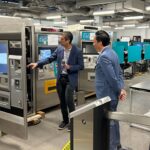
Conversely, Cubic shared its plans for 700 on-site staff to return to its Kearny Mesa office while offering a hybrid work schedule to support families. As childcare remains a pain point for many workers, the City has identified several City-owned properties that would be a good fit for childcare facilities to support Cubic’s working families.
Visits to and connection with San Diego’s employers is among Mayor Gloria’s top priorities. For these companies to maintain a strong local workforce, the region must prioritize affordable housing, childcare, and the training necessary to access opportunities at these life-changing companies.
EDC previously supported site visits alongside Mayor Gloria to Illumina, BD, Bristol Myers Squibb, and Dexcom.


